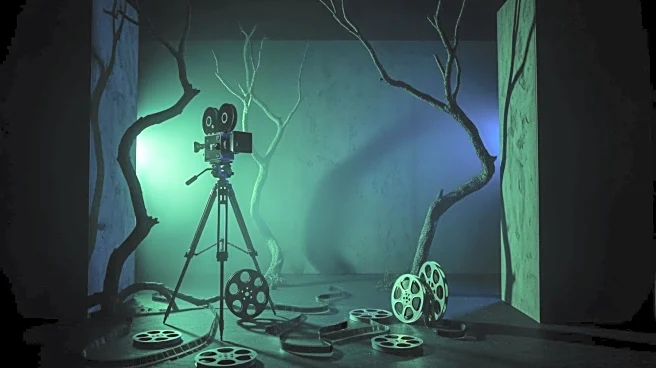What's Happening?
Soundgarden was inducted into the Rock & Roll Hall of Fame during the 2025 ceremony held in Cleveland, Ohio. The band was introduced by actor Jim Carrey, who shared a personal anecdote about receiving a guitar from the late Chris Cornell after hosting
Saturday Night Live in 1996. The induction featured performances of 'Rusty Cage' and 'Black Hole Sun' with Brandi Carlile, Taylor Momsen, Pearl Jam's Mike McCready, and Alice in Chains' Jerry Cantrell. Additionally, Toni Cornell, Chris Cornell's daughter, performed an acoustic version of 'Fell on Black Days' with Heart's Nancy Wilson. The event also included speeches from Soundgarden members Kim Thayil, Matt Cameron, Ben Shepherd, and Hiro Yamamoto, who reflected on personal and historical experiences.
Why It's Important?
The induction of Soundgarden into the Rock & Roll Hall of Fame highlights the enduring impact of grunge music and the band's influence on the genre. Chris Cornell's legacy continues to resonate with fans and musicians alike, as evidenced by the heartfelt tributes from his family and fellow artists. The ceremony also serves as a reminder of the cultural and historical significance of music in addressing broader societal issues, as noted in Hiro Yamamoto's speech about his family's experiences during World War II. This event underscores the role of music as a powerful medium for storytelling and social reflection.
What's Next?
Following the induction, Soundgarden's legacy is likely to be celebrated through various tributes and retrospectives, potentially leading to renewed interest in their music catalog. The band's influence may inspire new generations of musicians to explore grunge and alternative rock, contributing to the genre's evolution. Additionally, the Rock & Roll Hall of Fame may continue to honor artists who have made significant cultural and social contributions, fostering discussions on music's role in shaping public consciousness.
Beyond the Headlines
The induction ceremony not only celebrated Soundgarden's musical achievements but also highlighted the personal stories of its members, particularly Hiro Yamamoto's reflection on his family's internment during World War II. This acknowledgment of historical injustices adds a layer of depth to the event, emphasizing the importance of remembering and learning from the past. The ceremony serves as a platform for artists to share their narratives, fostering a deeper understanding of the intersection between music and societal issues.















